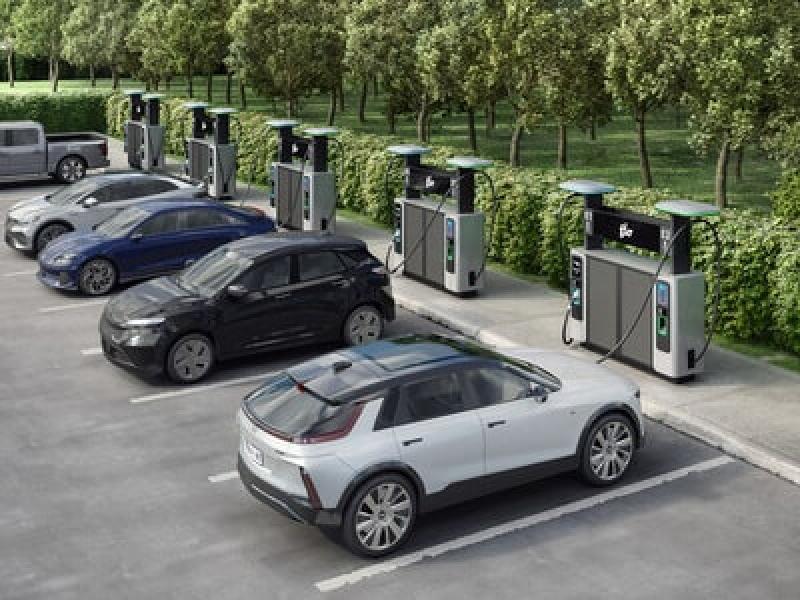
Smart charging solutions provider FLO will receive $220 million in funding from the Canada Infrastructure Bank (CIB) to bring over 2,000 additional public fast charging ports online across Canada by 2027.
It represents the first investment under the CIB’s Charging and Hydrogen Refuelling Infrastructure initiative, which is focused on expanding the private sector's rollout of large-scale electric vehicle (EV) charging infrastructure.
The chargers are to be installed within four years at approximately 400 sites.
"FLO’s traditional sell-and-operate business model has proven to have highly attractive unit economics. This loan program will provide funding to expand an own-and-operate model to allow FLO to deploy more stations faster to help fill gaps in Canada’s charging landscape," Frédérique Bouchard, FLO's senior manager of public affairs, told SustainableBiz via email.
"It is more critical than ever, given the major investments being made in other countries, to attract capital to the Canadian market so Canadians are not left behind."
FLO, the largest electric vehicle charging network in Canada, is headquartered in Quebec City. It was founded in 2009 as a subsidiary of AddÉnergie Technologies Inc.
It has installed over 90,000 fast and Level 2 electric vehicle charging stations in public, private and residential locations across North America.
The chargers are assembled at facilities in Shawinigan, Que. and Auburn Hills, Mich. It also has offices in Montreal, Vancouver and Sacramento, Calif.
CIB and FLO
The CIB launched its $500-million zero-emission vehicles and hydrogen charging initiative in September.
FLO will collaborate with site hosts to install the chargers along qualifying transportation corridors and in urban and suburban communities with populations greater than 20,000 residents.
"The size of the funding was determined carefully weighing a number of factors: charging gaps, projected needs, population density and funding availability," Bouchard wrote. "The exact amount will depend on the final site selection, but all parties are incentivized to deploy as quickly as possible."
According to Natural Resources Canada, the transportation sector accounts for 25 per cent of national greenhouse gas emissions. To reduce this, the Canadian government has an objective to add 50,000 new electric vehicle chargers and hydrogen refuelling stations across the country.
In December 2022, FLO was selected to supply General Motors Company's Dealer Community Charging Program, which will install up to 40,000 public Level 2 electric vehicle chargers across North America.
The venture will be the largest single deployment of electric vehicle chargers across North America, the companies said at the time.
FLO Ultra
The FLO-owned and operated network will primarily utilize the recently launched dual-port FLO Ultra along with the company's other fast-charging solutions.
Announced in February, the FLO Ultra can charge most electric vehicles to 80 per cent in 15 minutes with up to 320 kilowatts.
With multiple electric vehicle charging stations connected, it can reach up to 500 kilowatts. The FLO Ultra will be made of recycled aluminum.
At the time of that announcement, FLO stated the chargers would be available beginning in 2024.
"We continue to explore best opportunities with a range of potential partners, including with CIB," Bouchard said.










